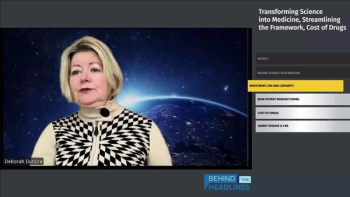On June 9, 2025, Secretary of Health and Human Services Robert F. Kennedy Jr. announced the dismissal of all 17 members of the Advisory Committee on Immunization Practices (ACIP), a Centers of Disease Control and Prevention (CDC)-affiliated body responsible for guiding vaccine policy in the United States (1). The decision was communicated through a Department of Health and Human Services (HHS) press release. While the Secretary holds the legal authority to
appoint and remove committee members, the wholesale dismissal of the panel is an unprecedented step and has prompted concern across public health, scientific, and biopharmaceutical sectors. The news follows announcements in March of a restructuring to include the reduction of HHS workforce by 10,000 full-time employees.
Regulatory and Policy Implications
Key Takeaways
·ACIP overhaul disrupts vaccine approval timelines, posing risks to clinical trial planning, FDA readiness, and seasonal launch strategies.
·Regulatory uncertainty from ACIP shake-up may delay vaccine reimbursement and market access, impacting commercial rollout and payer engagement.
·ACIP restructuring threatens US alignment with global vaccine policy, potentially undermining international regulatory harmonization and partnerships.
ACIP plays a foundational role in shaping immunization policy in the US. It provides evidence-based recommendations on the use of vaccines for children and adults, informs decisions about insurance coverage, and helps determine eligibility for publicly funded programs such as Vaccines for Children (VFC). In justifying the dismissals, Secretary Kennedy argued that a "clean sweep" was needed to "reestablish public confidence in vaccine science," asserting that future members would prioritize “public health and evidence-based medicine,” and avoid serving as a “rubber stamp for industry profit-taking agendas” (1).
Medical and scientific groups have pushed back against this characterization. The American Medical Association (AMA) stated that the decision “undermines trust and upends a transparent process that has saved countless lives,” while the Infectious Diseases Society of America called Kennedy’s accusations of bias “completely unfounded” (2,3). ACIP members are required to publicly disclose potential conflicts of interest and recuse themselves from votes where applicable. A government report previously cited by Kennedy to support his claims of systemic conflicts found no such widespread issues (4).
Industry groups have also raised serious concerns. The Biotechnology Innovation Organization (BIO), which represents biotechnology firms, including vaccine developers and manufacturers, criticized both the process and the timing of the dismissals (5). BIO President and CEO John F. Crowley emphasized that ACIP plays a legally mandated role not only in ensuring scientific rigor but also in determining how the US population accesses immunizations. Crowley noted that the removal of the committee members less than three weeks before ACIP’s next scheduled meeting risks derailing ongoing deliberations on critical vaccines, including those for respiratory syncytial virus (RSV), influenza, and human papillomavirus.
In particular, BIO highlighted that ACIP’s reviews involve months of preparation, including technical assessments by specialized working groups, and that a sudden overhaul disrupts this process. Crowley warned that such disruption could impair the committee’s ability to deliver timely, well-informed guidance—potentially putting public health at risk.
Impact on vaccine development and manufacturing
For vaccine developers and manufacturers of, the overhaul introduces short- and long-term uncertainty in the regulatory landscape. ACIP recommendations significantly influence vaccine uptake by guiding clinical practice, shaping insurance coverage decisions, and signaling public health priorities. An abrupt change in committee composition may delay decisions on new vaccines or introduce new criteria for evaluating safety and efficacy. This could directly affect investment planning, clinical trial design, and launch timelines, particularly for candidates in late-stage development or approaching FDA review.
Market access strategies are also likely to be affected. Reimbursement pathways for newly recommended vaccines depend in part on ACIP endorsement. Delays or inconsistencies in the committee’s operations could hinder payer engagement and commercial rollout, especially for seasonal or time-sensitive products. Manufacturers currently preparing for launches of RSV or updated influenza vaccines in the upcoming cycle may need to adjust expectations depending on how quickly the new committee is formed and operational.
Strategic and research considerations
Beyond immediate regulatory impacts, the restructuring raises broader strategic questions for vaccine research and development in the US. The longstanding credibility of ACIP has supported productive collaboration between government, academia, and industry, while also helping to align US policy with global regulatory norms. A perceived politicization of ACIP’s role or a reduction in scientific transparency may strain public–private partnerships and deter investment in vaccine-preventable disease areas.
In addition, international regulatory bodies often look to ACIP as a model for evidence-based immunization policy. If future decisions by the reconstituted committee are seen as politically motivated or inconsistent with global standards, this could affect regulatory harmonization and market access strategies for multinational firms.
Period of uncertainty
The removal of all voting members of the ACIP introduces a period of heightened uncertainty for the pharmaceutical industry, particularly for vaccine developers, manufacturers, and regulatory affairs professionals. While the long-term implications will depend on who is appointed to the committee and how it operates going forward, the abruptness and scale of the change have disrupted a long-standing scientific and policy framework. Continued attention will be required to assess how future ACIP deliberations evolve and what this means for US immunization policy and pharmaceutical innovation.
References
- Department of Health and Human Services. HHS Takes Bold Step to Restore Public Trust in Vaccines by Reconstituting ACIP. Press Release. June 9, 2025.
- American Medical Association. AMA Statement on Advisory Committee on Immunization Practices. Press Release. June 9, 2025.
- Infectious Diseases Society of America. Statement on the Advisory Committee on Immunization Practices. Press Release. June 9, 2025.
- National Public Radio. RFK Jr. Boots All Members of the CDC’s Vaccine Advisory Committee. June 9, 2025.
- Biotechnology Innovation Organization. BIO Statement on HHS Dismissal of CDC Advisory Committee Members. Press Release. June 9, 2025.





